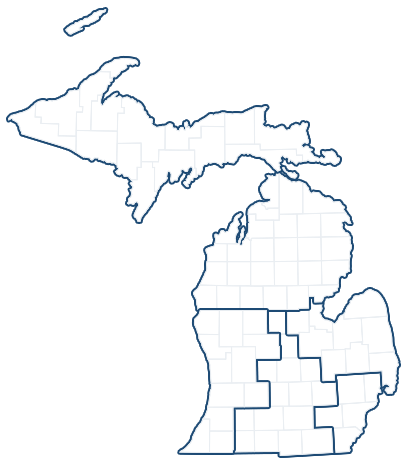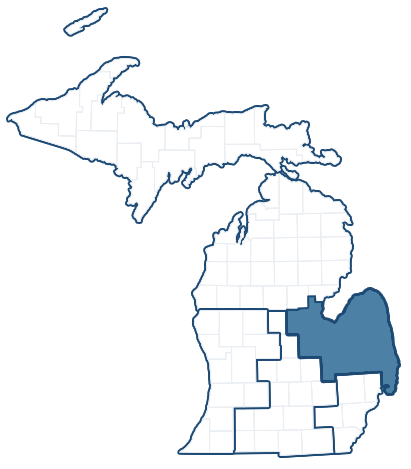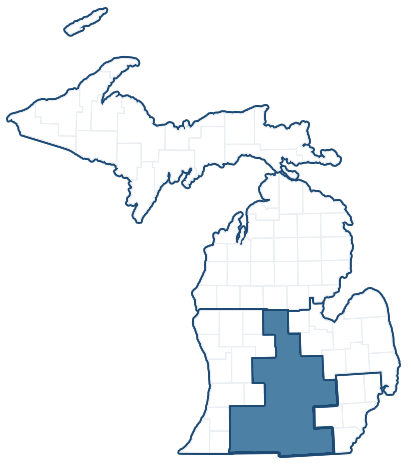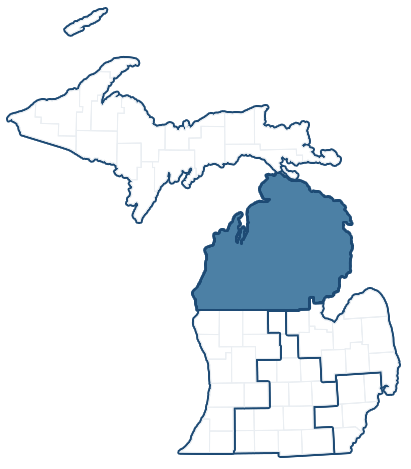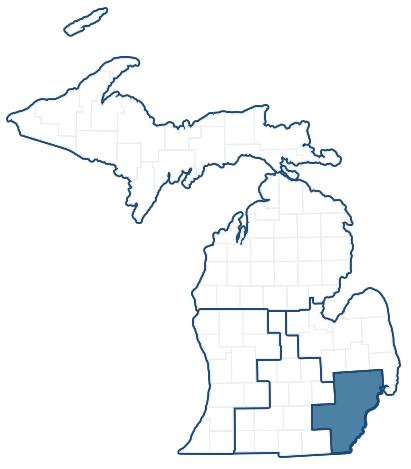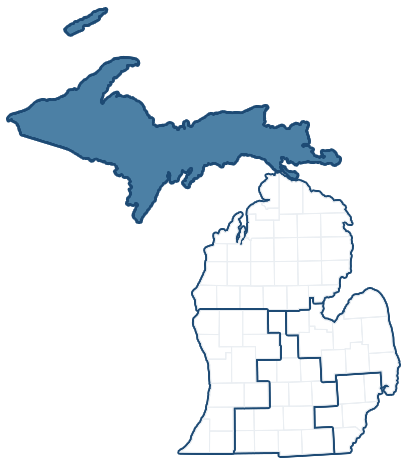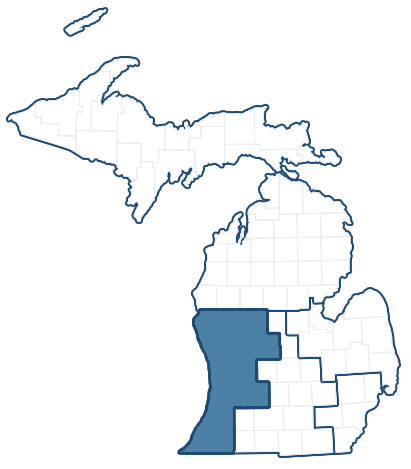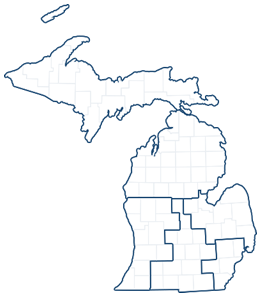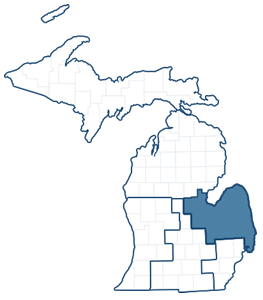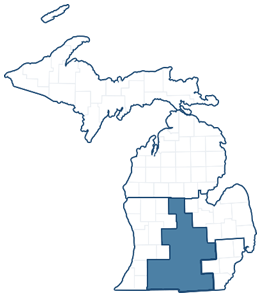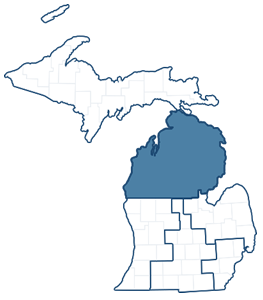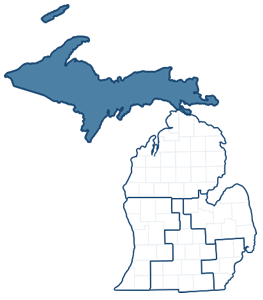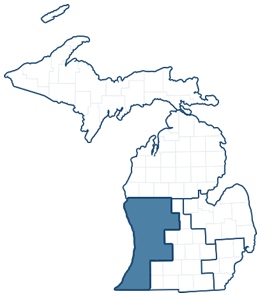Stabenow, Peters Introduce Bill to Protect Great Lakes From Oil Spills, Improve Pipeline Safety
Wednesday, September 23, 2015U.S. Senators Debbie Stabenow and Gary Peters (MI) today introduced the Pipeline Improvement and Preventing Spills Act to ban shipping of crude oil by vessel on the Great Lakes and require a comprehensive, top-to-bottom review of hazardous pipelines in the region. This legislation would also assess the current status of oil spill response and cleanup plans, require ice cover be part of worst-case scenarios in response plans, increase public information about pipelines for local communities, and require the Pipeline and Hazardous Materials Safety Administration (PHMSA) to consider new criteria for identifying areas at high risk for a pipeline spill. Peters serves on the Senate Commerce, Science and Transportation Committee, which is expected to consider pipeline safety legislation this fall, and Senator Stabenow is Chair of the Senate Great Lakes Task Force.
"Another pipeline break like the one that dumped a million gallons of oil into the Kalamazoo River would be devastating for our Great Lakes, waters, and wildlife," said Senator Stabenow, Co-Chair of the Senate Great Lakes Task Force. "This bill requires a thorough review and plan to minimize risks and prevent catastrophic oil spills. It will give the State of Michigan additional information to provide stronger oversight of oil pipelines to prevent potential spills and keep our waters safe."
"After experiencing one of the largest inland oil spills in U.S. history, Michiganders know all too well that a pipeline break can have devastating consequences for our environment and our economy," said Senator Peters, member of the Senate Great Lakes Task Force. "One can only imagine what a disaster it would be for a similar oil spill to occur in the Great Lakes, the world's largest system of fresh surface water. This commonsense legislation will help us prevent an oil spill in the Great Lakes, whether it's a tanker accident or a pipeline leak in the Straits of Mackinac, so that we can protect and preserve this ecological treasure for generations to come."
Enbridge Inc. is conducting an emergency response exercise this week for an oil spill at Line 5, the aging twin pipelines that run through the Straits of Mackinac and are now more than 60 years old. On Tuesday, PHMSA Administrator Marie Therese Dominguez accepted an invitation from Stabenow and Peters to attend the spill drill and see firsthand if we have the capacity to respond to an oil spill in the Straits of Mackinac. Participants in the exercise include the U.S. Coast Guard, U.S. Environmental Protection Agency, National Oceanic Atmospheric Administration, U.S. Fish and Wildlife Service, Michigan State Police, local law enforcement, and Native American tribes.
The Great Lakes are uniquely vulnerable to an oil spill - especially in the Straits of Mackinac, which experts have described as the worst possible place for an oil spill in the Great Lakes. Shifting currents would spread the oil quickly, contaminating waters, coastline and wildlife throughout Lake Michigan and Lake Huron. A spill in the Great Lakes would be complicated by the lack of research on impacts and cleanup of oil spills in bodies of fresh water, especially under heavy ice cover. Current methods of oil spill response and cleanup, such as oil dispersants and mechanical recovery, may not be as effective in large bodies of cold, fresh water. In an April 28th Commerce Committee hearing, U.S. Coast Guard Commandant Admiral Paul F. Zukunft said he "is not comfortable" with current contingency plans for a worst-case scenario spill in the Great Lakes.
The Pipeline Improvement and Preventing Spills Act will protect the Great Lakes from oil spills by:
• Banning the shipment of crude oil on tanker vessels and barges on the Great Lakes. Earlier this month, the State of Michigan and Enbridge reached an agreement not to transport heavy crude oil under the current configurations of Line 5. As we rapidly explore alternatives to Line 5, and as energy transportation increases in the U.S., this bill makes clear that shipping crude oil on the Great Lakes is an unacceptable transportation option. There is currently no crude oil transported by vessel on the Great Lakes, and this bill keeps it that way.
• Mandating federal studies on pipeline risks in the Great Lakes, including alternatives to Line 5. The bill mandates analysis by the Department of Transportation and the National Academies on the risks associated with pipelines that run through the Great Lakes and other waterways in the region. The studies must deliver a report to Congress with safety recommendations related to reducing spill risks, including an assessment of alternatives to Line 5 and a comprehensive map of pipelines crossing waterways in the Great Lakes basin.
• Improving oil spill response plans. The legislation requires the U.S. Coast Guard and other agencies to independently assess the current status of oil spill response and cleanup activities and techniques. It would also amend current law to require response plans that address icy conditions, when waters affected by a spill are covered in whole or in part by ice. During the past two winters, maximum ice coverage in the Great Lakes has been well above normal levels. The Coast Guard has stated it does not have the technology or capacity for worst-case discharge cleanup under solid ice, and that its response activities are not adequate in ice-choked waters.
• Increasing public information and transparency about pipeline risks. Corporate information on pipeline operating standards, inspection reports and other information related to safety is often kept secret, or difficult to access and understand. The bill ensures residents are notified about pipelines near their property and compels operators to maintain publicly available information.
• Expanding PHMSA's criteria for High Consequence Areas. PHMSA requires additional safety measures for hazardous liquid pipelines in High Consequence Areas, and this bill adds new criteria for making that determination. New considerations will include the age of the pipeline, type of oil being transported, whether the pipeline can be inspected using the most modern technology, and whether the pipeline crosses open waters of the Great Lakes.
The Pipeline Improvement and Preventing Spills Act is endorsed by Michigan League of Conservation Voters, Pipefitters, Plumbers & HVAC Techs Local 111, FLOW (For Love of Water), Tip of the Mitt Watershed Council, Les Cheneaux Watershed Council, National Wildlife Federation, Michigan Environmental Council, and the Alliance for the Great Lakes.
"The state of Michigan is incredibly fortunate to have Senators Peters and Stabenow spearheading a plan to protect our Great Lakes from high-risk oil pipelines that threaten our clean water," said Lisa Wozniak, Executive Director for the Michigan League of Conservation Voters. "We cannot afford another disastrous oil spill in Michigan, and we cannot afford to stand by while aging pipelines continue to carry oil through the Great Lakes. Senator Peters is taking critical steps to keep our drinking water safe and ensure the Great Lakes are here and healthy for future generations to enjoy. We are very grateful for his leadership."
"Improving pipeline safety to protect the Great Lakes is in everyone's interest," said Mike Hares, Business Agent and Manager for the Pipefitters, Plumbers & HVAC Techs Local 111. "This bill will require more pipelines to be fitted with the best technology available. Upgrading this energy infrastructure supports jobs for the pipefitters, construction and utility workers who will add safety features, carry out maintenance and inspections, and fix our pipelines. We thank Senators Peters and Stabenow for taking a commonsense approach to tackling this issue for Michigan."
"The bill introduced by Senators Peters and Stabenow, the Pipeline Improvement and Preventing Spills Act, is the kind of visionary legislation we need to truly protect our Great Lakes and waterways from a catastrophic oil spills," said Liz Kirkwood, Executive Director of FLOW (For Love of Water), a Great Lakes water law and policy center based in Traverse City. "New pipeline legislation is desperately needed to keep pace with the American energy sector's vast network of 2.6 million miles of pipeline. First and foremost, this bill bans shipping crude oil on any of the Great Lakes as an unacceptable transportation alternative given the extreme risk, magnitude of harm, and inadequate oil spill response. It also demands greater transparency and a water crossing risk analysis about the condition of our nation's aging pipeline infrastructure, as well as heightened protection for high consequence areas like the Great Lakes, which contain some 20 percent of the planet's fresh surface water. We thank Senators Peters and Stabenow for being a Great Lakes champion."
"Pipelines crossing Michigan's rivers, streams, and the Great Lakes put these resources at risk - threatening our health and economic viability," said Jennifer McKay, Policy Specialist for Tip of the Mitt Watershed Council. "The bill introduced by Senators Peters and Stabenow represents decisive action that will help safeguard the Great Lakes and Michigan's inland waters from oil spills. We fully support the Pipeline Improvement and Preventing Spills Act and urge Congress to move swiftly to pass this legislation. Taken together, the bill will move us toward the comprehensive approach to oil transportation and pipeline policy we need to protect our Great Lakes, inland waters, and public health. We applaud Senator Peters for introducing a bill that will help protect the ecological and economic future of Michigan as well as health and safety of our citizens."
"The Alliance for the Great Lakes supports the Pipeline Improvement and Preventing Spills Act of 2015. We applaud Senators Peters and Stabenow for their leadership in protecting our Great Lakes water from crude oil spills," said Joel Brammeier, President and CEO of the Alliance for the Great Lakes. "We look forward to working with Senators Peters, Stabenow and all of their Great Lakes colleagues to ultimately implement a comprehensive approach to protecting all communities in the region from the risks of crude oil transportation."
"Strengthening safeguards from oil pipelines while shutting the door on shipping crude oil on the Great Lakes are commonsense and necessary moves for the world's greatest freshwater resource," said Mike Shriberg, Great Lakes Regional Executive Director for the National Wildlife Federation. "There is no reason to allow the possibility of crude oil tankers on the Great Lakes, especially since oil drilling on and under the Lakes has already been banned by Congress. The National Wildlife Federation commends Senators Peters and Stabenow for their strong leadership in protecting the Great Lakes."
Senator Peters has been a strong supporter of enhancing pipeline safety to protect the Great Lakes. In June, the Senate Commerce Committee approved a Peters amendment to the Coast Guard Authorization Act that would require the Coast Guard to work with partner agencies including the National Oceanic and Atmospheric Administration (NOAA) to conduct an assessment on the effectiveness of oil spill response activities in the Great Lakes.
In January, Peters and Stabenow introduced an amendment that would have required PHMSA to certify it has the resources necessary to conduct proper oversight of pipeline safety in the Great Lakes before approving construction of the Keystone XL pipeline. It also would have required PHMSA to develop recommendations for special conditions to apply to pipelines in the Great Lakes.
Next Article Previous Article



